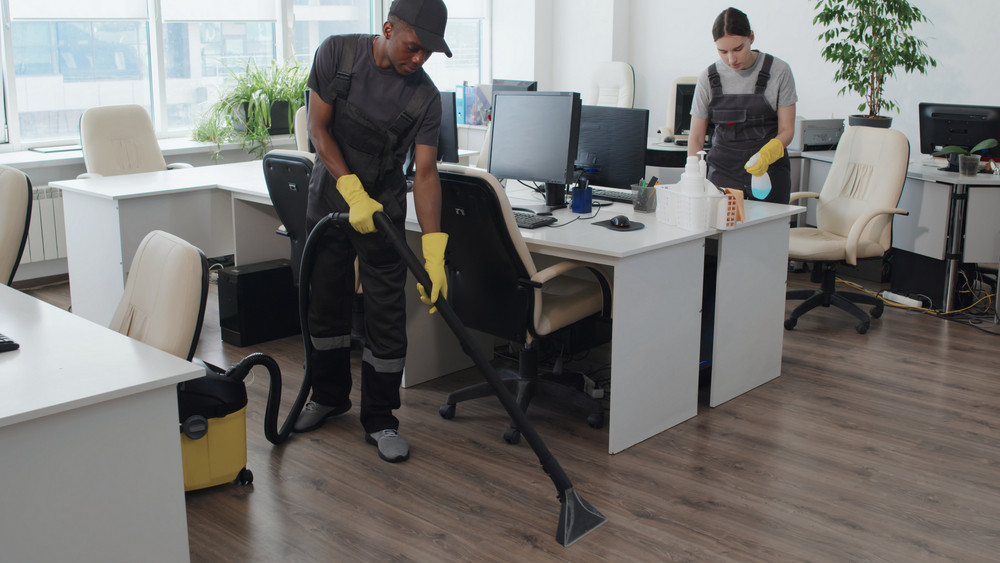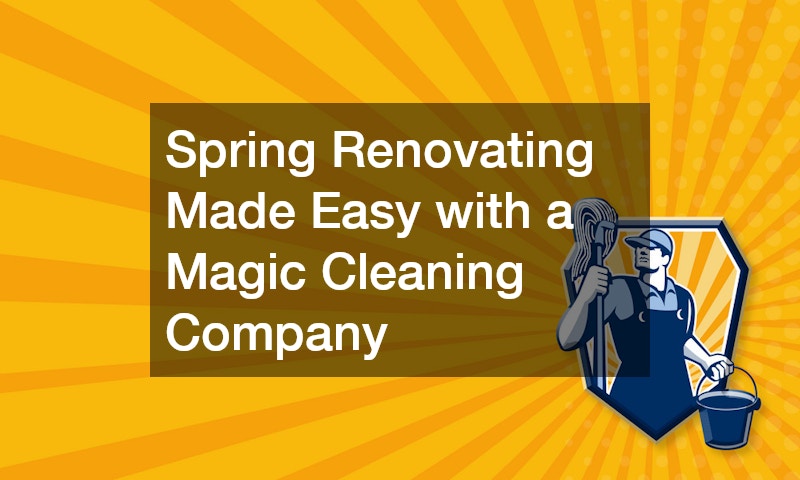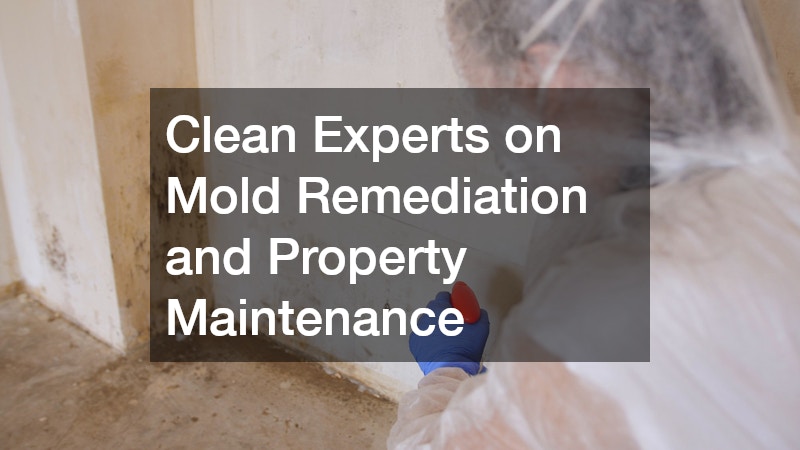Highlights:
- Hiring an insured commercial cleaning company safeguards your business from financial and legal risks.
- Insurance protects against property damage, employee injuries, and other potential liabilities.
- Cleaning companies should carry general liability and workers’ compensation insurance at minimum.
- Choosing an insured provider builds trust, credibility, and long-term reliability.
- Verifying insurance coverage before signing a contract can prevent costly disputes.

The Value of Insurance in the Commercial Cleaning Industry
When hiring a commercial cleaning company, insurance may not be the first thing that comes to mind. However, it is one of the most important factors in protecting your business. Cleaning professionals work directly in your offices, warehouses, or retail spaces—often during off-hours and around valuable property. Without proper insurance, your company could be financially responsible for accidents, damage, or injuries that occur during cleaning.
Insurance demonstrates professionalism and accountability. It shows that the cleaning company takes its responsibilities seriously and has safeguards in place to handle unexpected events. This peace of mind is invaluable for any business owner who wants consistent, risk-free cleaning services.
What Can Go Wrong Without an Insured Cleaning Company
Many businesses make the mistake of hiring the lowest bidder without checking whether the company is insured. While this might save money upfront, the long-term risks can be severe.
If an uninsured cleaner slips and falls on your property, your business could face a costly injury claim. If a cleaning technician accidentally damages expensive equipment or sensitive documents, you might have no recourse for reimbursement. Even something as simple as a water spill could cause electrical damage that results in downtime or repairs.
In other words, working with an uninsured provider leaves you vulnerable to financial loss, potential lawsuits, and even reputational harm if a dispute becomes public.
The Main Types of Insurance Every Commercial Cleaning Company Should Have
Before signing a cleaning contract, verify that the company carries the following types of insurance coverage:
1. General Liability Insurance
This policy protects both the cleaning company and your business if property damage or bodily injury occurs during cleaning. For example, if a cleaner accidentally breaks a glass door or damages flooring, general liability insurance covers the repair or replacement cost.
2. Workers’ Compensation Insurance
Workers’ compensation protects employees who get injured on the job and shields your business from liability. Cleaning can involve slippery floors, heavy lifting, and exposure to chemicals—all of which pose injury risks. With workers’ compensation coverage, injured employees receive the medical care and wage replacement they need without involving your company.
3. Bonding Insurance
Bonding insurance offers protection if a cleaner commits theft or another dishonest act while on your premises. Though rare, this coverage gives business owners an extra layer of reassurance.
4. Commercial Auto Insurance
If the cleaning company uses vehicles to transport equipment or staff, commercial auto insurance covers accidents and damages that occur while driving for work purposes.
5. Umbrella or Excess Liability Insurance
This optional coverage extends the limits of existing policies, offering additional protection against large claims that exceed standard policy limits.
Why Insurance Protects Your Business
Insurance isn’t just about coverage—it’s about confidence. When a commercial cleaning company is insured, it demonstrates professionalism and reliability. It also means that your property and staff are better protected from the unexpected.
For example, if a cleaner accidentally damages your computer systems or causes water damage during carpet cleaning, you won’t have to pay for the repairs yourself. Insurance covers those costs, allowing your operations to continue smoothly.
According to Statista, the U.S. commercial cleaning services industry employs over 1 million workers, meaning there’s significant potential for accidents or errors. Insurance ensures these incidents don’t become your financial responsibility.
The Financial Impact of Choosing an Uninsured Cleaning Company
Working with an uninsured company can result in high, unplanned expenses. Even a single incident can lead to thousands of dollars in damages or legal fees. Businesses may also face increased insurance premiums if their provider determines they engaged with an uninsured contractor.
Beyond direct costs, there’s also the potential for operational disruption. If property damage occurs, your workspace might be temporarily unusable—leading to lost productivity and frustrated employees or clients. In severe cases, disputes with uninsured providers can escalate to lawsuits, further draining your time and resources.
What to Ask Before Hiring a Commercial Cleaning Company
To avoid costly mistakes, business owners should verify coverage and credentials before hiring. Consider asking the following questions:
- Can you provide proof of general liability and workers’ compensation insurance?
- What is your policy limit for property damage and bodily injury?
- Are your employees bonded?
- How long has your insurance coverage been active?
- Will your insurance cover damages caused by subcontractors, if any?
- Can I be listed as an additional insured on your policy?
A professional cleaning company will readily provide this information. If they hesitate or make excuses, that’s a clear warning sign.

The Importance of Certificates of Insurance (COI)
A Certificate of Insurance (COI) serves as proof that a cleaning company carries active and valid insurance coverage. Before signing a contract, request a COI and confirm its authenticity with the insurer.
The COI should include:
- The type of insurance
- Policy limits
- Coverage dates
- The insurance carrier’s name and contact information
You can also ask to be listed as an “additional insured,” which gives your business direct protection under the policy in case of an incident.
How Insurance Reflects Professional Standards
Insurance coverage is more than just a legal safeguard—it’s a mark of professionalism. Reputable commercial cleaning companies maintain insurance to show clients they take safety and accountability seriously. It also means they are financially stable and compliant with local regulations.
Companies that invest in proper coverage typically maintain better hiring standards, offer training for safety, and use higher-quality cleaning products. These factors all contribute to more reliable, consistent service for your business.
How to Verify a Cleaning Company’s Insurance Coverage
It’s not enough to take a provider’s word for it. Follow these steps to confirm that your cleaning company’s insurance is valid and sufficient:
- Request a COI: Always ask for documentation.
- Check the Expiration Date: Make sure coverage is current and active throughout the contract.
- Confirm Coverage Amounts: Verify that policy limits are adequate for your business’s scale and property value.
- Call the Insurance Provider: Contact the listed insurer directly to confirm policy authenticity.
- Review Policy Types: Ensure general liability, workers’ compensation, and bonding insurance are included.
By taking these precautions, you can protect your business from liability and partner with a truly professional service provider.
How Insurance Benefits Employees and Clients Alike
Insurance doesn’t just protect business owners—it also safeguards cleaning staff and clients. Workers’ compensation provides critical support if an employee is injured, while general liability protects client assets.
For employees, this fosters a safer work environment and greater job security. For clients, it ensures that accidents don’t become financial burdens or legal disputes. It’s a mutually beneficial arrangement that builds a foundation of trust between all parties involved.
Why Business Owners Should Prioritize Insured Partners
Every business relies on its vendors and contractors to maintain smooth operations. When one of those vendors lacks insurance, your entire risk management strategy weakens.
Hiring an insured commercial cleaning company means you’re partnering with a business that values safety, responsibility, and long-term relationships. It reduces the potential for interruptions, claims, and costly repairs—allowing you to focus on growth instead of managing preventable issues.
Key Takeaways
- Always verify insurance coverage before signing a cleaning contract.
- Confirm that the company carries general liability, workers’ compensation, and bonding insurance.
- Request and review the Certificate of Insurance for accuracy and authenticity.
- Insurance coverage reflects professionalism, accountability, and financial stability.
- Working with an uninsured company exposes your business to unnecessary risks and expenses.
Final Thoughts
Your business deserves a cleaning partner that protects your property, your staff, and your reputation. Hiring an insured commercial cleaning company not only minimizes financial risk but also reflects a commitment to professionalism and safety. In a competitive industry where quality and reliability matter most, choosing a fully insured provider gives you peace of mind and lasting confidence in the cleanliness and care of your facility.




